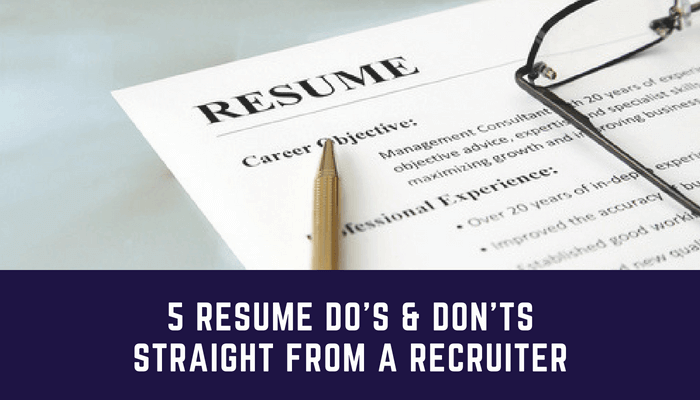Like most steps in the job search process, resume writing can seem like a chore. But an important chore, nonetheless.
You’ve heard it before: a resume acts as a first impression, first date and deal-breaker rolled into one. An unorganized, bloated CV easily eliminates you from the competition before you’ve even had a chance to prove yourself.
Associate Director of Executive Search Cynthia Jane offers financial professionals key takeaways to consider when crafting an effective resume. That way, you’ll be noticed, but for the right reasons.
1. KEEP IT CLEAN
HR professionals and recruiters like Jane don’t have a lot of time to spare. Make their jobs easier by formatting your resume simply and logically. Presentation matters, and in this case, can mean the difference between the trash and the interview pile.
“I’m looking for clean, organized and detailed resumes,” she says. “It is the first impression anyone has of you, as it reflects your communication style and technical capabilities.”
2. DON’T EMBELLISH
We get it — finding ways to stand out is imperative in today’s competitive job market. But resorting to fluff isn’t the best method. Jane points to exaggerated word choices such as “guru” and “master” as potential red flags to employers, and aren’t typically used in a job interview setting. If the interviewer asks you to elaborate or defend such claims and you’re unable to, it will reflect poorly on your overall credibility.
3. SHOWCASE YOUR BEST SELF
There’s a common misconception about one-page vs. multiple-page resumes. Less is more, right? Well, not necessarily. Job seekers should be thoughtful, yet specific about their work experiences from the past 10 years. Jane also encourages candidates to highlight their human side by including their volunteer and community-related background.
“Your resume is a refection of your writing skills, organization and attention to detail. It is an extension of who you are at first glance and you want the reader to be intrigued and interested in learning more about you,” she explains. “Include details of what you have been responsible for and showcase your technical skill set and knowledge.”
4. TAKE THE TIME FOR DETAILS
Generalizing your job responsibilities may save space and time, but can leave the employer with an unfinished picture of your capabilities. “You potentially may not get the job because the employer didn’t see a skill set or a buzzword that they were looking for,” Jane says.
Her advice: quantify, quantify, quantify. Write down your duties, and break them down on a daily, quarterly and annual-basis. This helps build a more in-depth understanding of your professional prowess and overall impact at previous places of employment.
5. PLAY TO YOUR INDUSTRY
A follow-up to the previous point, it’s important job seekers focus on the technical aspects of their work — not the administrative and operational. Emphasize aspects and key tasks that are relevant to your expertise and industry.
“If you are in accounting, then we should read about your accounting handiwork. If you are in finance, then we want to know about your analytical and quantitative skills,” Jane explains. “Licenses, such as a CPA, should be included next to your name at the top of the resume.”
Are you a financial professional looking for new career opportunities? Explore our latest jobs!







